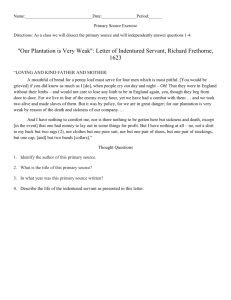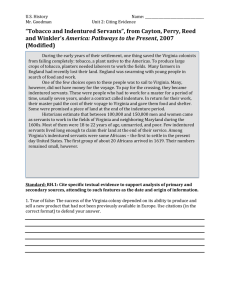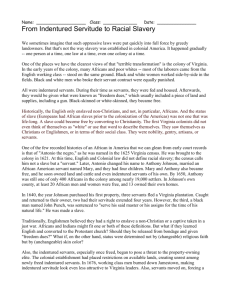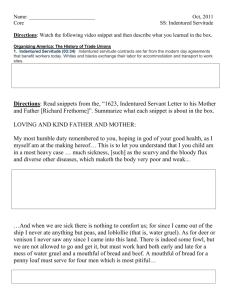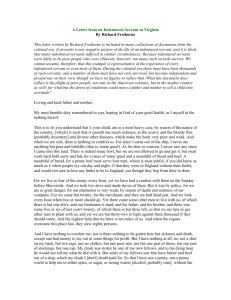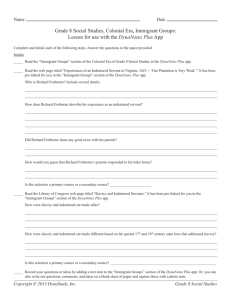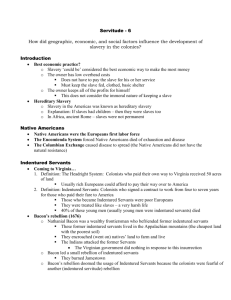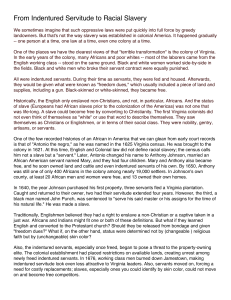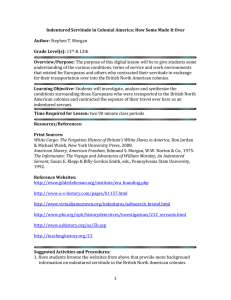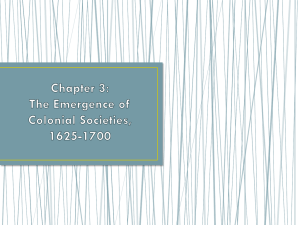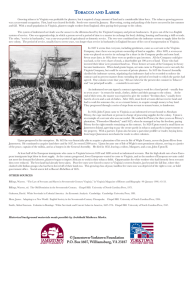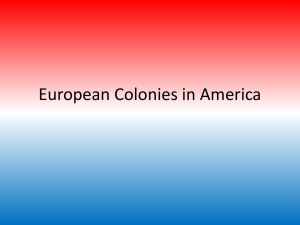AP style multiple choice questions
advertisement
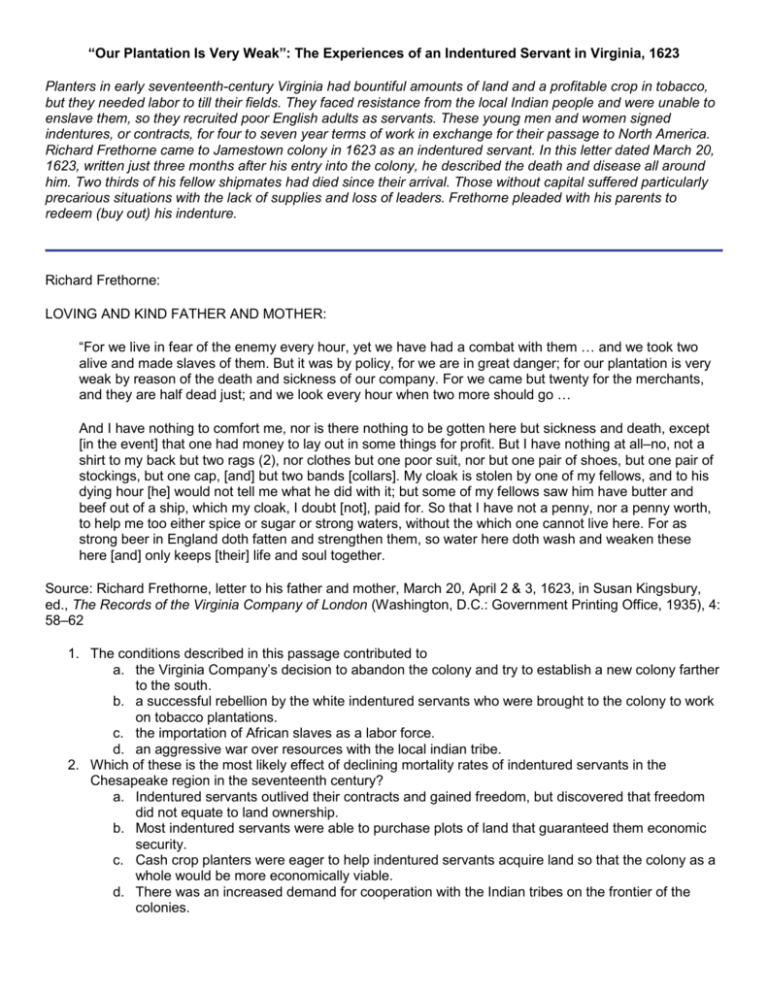
“Our Plantation Is Very Weak”: The Experiences of an Indentured Servant in Virginia, 1623 Planters in early seventeenth-century Virginia had bountiful amounts of land and a profitable crop in tobacco, but they needed labor to till their fields. They faced resistance from the local Indian people and were unable to enslave them, so they recruited poor English adults as servants. These young men and women signed indentures, or contracts, for four to seven year terms of work in exchange for their passage to North America. Richard Frethorne came to Jamestown colony in 1623 as an indentured servant. In this letter dated March 20, 1623, written just three months after his entry into the colony, he described the death and disease all around him. Two thirds of his fellow shipmates had died since their arrival. Those without capital suffered particularly precarious situations with the lack of supplies and loss of leaders. Frethorne pleaded with his parents to redeem (buy out) his indenture. Richard Frethorne: LOVING AND KIND FATHER AND MOTHER: “For we live in fear of the enemy every hour, yet we have had a combat with them … and we took two alive and made slaves of them. But it was by policy, for we are in great danger; for our plantation is very weak by reason of the death and sickness of our company. For we came but twenty for the merchants, and they are half dead just; and we look every hour when two more should go … And I have nothing to comfort me, nor is there nothing to be gotten here but sickness and death, except [in the event] that one had money to lay out in some things for profit. But I have nothing at all–no, not a shirt to my back but two rags (2), nor clothes but one poor suit, nor but one pair of shoes, but one pair of stockings, but one cap, [and] but two bands [collars]. My cloak is stolen by one of my fellows, and to his dying hour [he] would not tell me what he did with it; but some of my fellows saw him have butter and beef out of a ship, which my cloak, I doubt [not], paid for. So that I have not a penny, nor a penny worth, to help me too either spice or sugar or strong waters, without the which one cannot live here. For as strong beer in England doth fatten and strengthen them, so water here doth wash and weaken these here [and] only keeps [their] life and soul together. Source: Richard Frethorne, letter to his father and mother, March 20, April 2 & 3, 1623, in Susan Kingsbury, ed., The Records of the Virginia Company of London (Washington, D.C.: Government Printing Office, 1935), 4: 58–62 1. The conditions described in this passage contributed to a. the Virginia Company’s decision to abandon the colony and try to establish a new colony farther to the south. b. a successful rebellion by the white indentured servants who were brought to the colony to work on tobacco plantations. c. the importation of African slaves as a labor force. d. an aggressive war over resources with the local indian tribe. 2. Which of these is the most likely effect of declining mortality rates of indentured servants in the Chesapeake region in the seventeenth century? a. Indentured servants outlived their contracts and gained freedom, but discovered that freedom did not equate to land ownership. b. Most indentured servants were able to purchase plots of land that guaranteed them economic security. c. Cash crop planters were eager to help indentured servants acquire land so that the colony as a whole would be more economically viable. d. There was an increased demand for cooperation with the Indian tribes on the frontier of the colonies. 3. Which of the following best describes a yeoman farmer in the Chesapeake region in the seventeenth century? a. A farmer who was only in the colony until he earned enough money to purchase land in England. b. A farmer who owned a small, family-farmed plot of land and possible a few servants to help work the land. c. A farmer who lived a subsistence life in the wilderness. d. A farmer who was unwilling to cede political control to the growing population of indentured servants.
